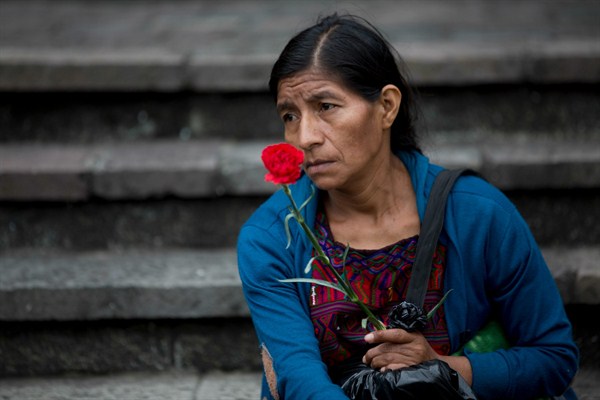On Sept. 26, in a tense, crowded courtroom in Guatemala City, a three-judge panel ruled unanimously that genocide and crimes against humanity occurred in the Maya-Ixil region of northern Guatemala in 1982 and 1983, at the height of the country’s civil war. But in a split 2-1 vote, the court determined that the defendant, retired Gen. Jose Mauricio Rodriguez Sanchez, did not bear criminal responsibility for the crimes and acquitted him on all charges. Ixil witnesses who testified during the trial described the court’s ruling as “bittersweet” and vowed to continue their fight for justice.
This was the second acquittal for Rodriguez Sanchez, 72, for crimes against the Maya-Ixil, one of the 22 Maya ethno-linguistic groups in Guatemala, where about half the population is indigenous people. In May 2013, another Guatemalan court absolved him of those charges, while convicting Gen. Efrain Rios Montt—the de facto head of state in 1982 and 1983—for genocide and crimes against humanity. Rodriguez Sanchez was Rios Montt’s chief of military intelligence. Days after the 2013 sentence, however, Guatemala’s Constitutional Court vacated the lower court’s verdict on technical grounds, in a controversial ruling that most observers saw as politically motivated, following protests by business and military elites against the genocide conviction. The Constitutional Court’s ruling led to a re-trial for both defendants.
After numerous false starts, the new genocide trial began in October 2017. The 91-year-old Rios Montt, under house arrest since 2013, died six months later, on April 1, in the midst of the new proceedings.

